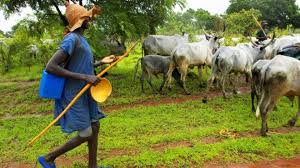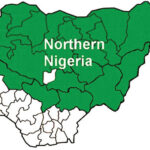The farmer-herder conflict in northern Nigeria has become one of the most pressing challenges in the region. This long-standing issue, often rooted in competition over land and water resources, has escalated into violent clashes, disrupting the lives of rural communities. Addressing this crisis requires a comprehensive understanding of its causes and a multi-faceted approach to foster peace and stability.
At the heart of the conflict lies competition for dwindling natural resources. Farmers depend on fertile land for crop cultivation, while herders require expansive grazing areas for their livestock. Factors such as climate change, desertification, and population growth have exacerbated resource scarcity, intensifying tensions. Additionally, weak land governance systems and unclear property rights further fuel disputes over ownership and access.
The violence resulting from these conflicts has severe implications for rural communities. Many farmers and herders have been displaced, leading to loss of livelihoods and increased poverty. Schools, health centers, and other critical infrastructure in affected areas have been destroyed or abandoned. The fear of attacks has disrupted farming and grazing activities, resulting in food insecurity. Beyond economic impacts, the violence has fractured social cohesion, eroding trust among communities that once coexisted peacefully.
While efforts have been made to address the issue, many government interventions have been inadequate or poorly implemented. Policies such as the National Livestock Transformation Plan (NLTP) aim to modernise livestock management and reduce conflicts, but progress has been slow. Strengthening land tenure systems, improving security, and fostering dialogue between farmers and herders are crucial steps that require greater commitment from authorities.
Community-based approaches are essential to resolving these conflicts. Establishing inclusive dialogue platforms where farmers, herders, traditional leaders, and local authorities can discuss grievances and negotiate solutions is key. Traditional conflict resolution mechanisms, which have been used for centuries, should be revitalised and integrated into modern peacebuilding frameworks.
Educating rural communities about sustainable land use practices and conflict management can significantly reduce tensions. Government and non-governmental organisations should provide training programs to teach both farmers and herders how to coexist harmoniously. Raising awareness about the impacts of climate change and promoting adaptive strategies can also mitigate competition over resources.
Climate-smart agricultural practices and environmental conservation efforts must be prioritised to reduce the strain on resources. Reforestation projects, water conservation initiatives, and the development of grazing reserves can provide sustainable solutions to resource scarcity. Encouraging the adoption of ranching and other modern livestock management systems can also minimize the need for herders to migrate, reducing clashes with farmers.
Improving security in rural areas is vital to curbing violence. Deploying well-trained security personnel to conflict hotspots, enhancing intelligence gathering, and ensuring swift justice for perpetrators of violence can deter future clashes. Strengthening judicial systems to handle land disputes fairly and transparently is equally important.
Addressing the farmer-herder conflict in northern Nigeria is not the sole responsibility of the government; it requires collaboration among all stakeholders, including community members, traditional leaders, civil society organizations, and international partners. By prioritising dialogue, sustainable practices, and equitable policies, it is possible to restore peace to rural areas and improve the livelihoods of both farmers and herders. Achieving this will pave the way for lasting stability and development in northern Nigeria.
Idris Bubu Umar is a student of Mass Communication Department, Borno State University

 Join Daily Trust WhatsApp Community For Quick Access To News and Happenings Around You.
Join Daily Trust WhatsApp Community For Quick Access To News and Happenings Around You.
